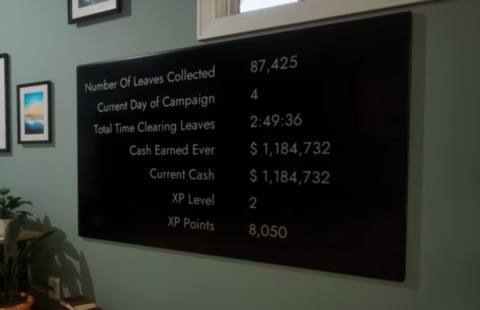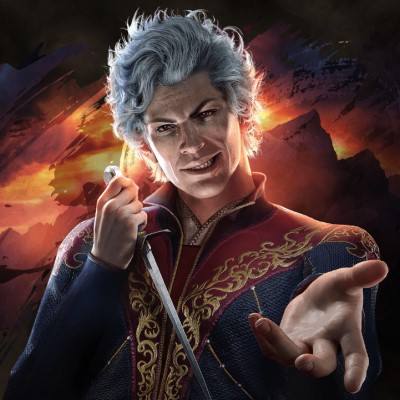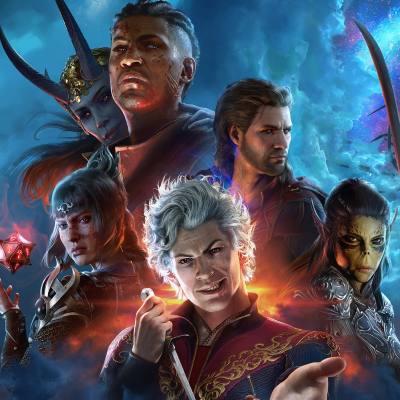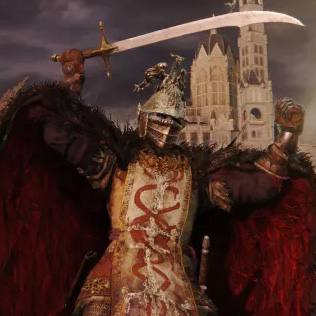If you saw the season two finale of hit Adult Swim cartoon Smiling Friends last week, you could make out in the lower-right corner, taking up a generous 4% of the screen, the distinctive quadruple back buttons of the Steam Deck being slapped by the fingerless hands of supporting character Glep, a 1,695-year-old frog guy, reclined in a bean bag chair.
An official Valve gaming handheld, clearly visible for eight seconds of an 11-minute cartoon? Truly, this was the moment PC gaming became mainstream.

OK, no, this was not the dawning moment of cultural acceptance of our decades-old hobby, which you could reasonably argue is the first and oldest gaming platform. By my count, PC gaming has enjoyed mainstream visibility on par with its console counterparts arguably as far back as 2017 or 2018, when the generation that grew up on Minecraft reached ages that made it a perfect audience for games deeply steeped in the spirit of PC gaming. (Also, technically, Smiling Friends referenced PC gaming a whole year earlier last season when it showed us a depressed Satan spending time playing Rust and hanging out on Discord. Relatable, Satan.)
If mainstream-ness is measured in television appearances, readers of this very website will know that PC gaming has been blessed for some time by the acknowledgement that only minor-to-medium celebrities can provide. A wing of our website was temporarily dedicated to documenting Henry Cavill's PC gaming habit, but earlier than that, Terry Crews spoke to us in 2017 about discovering PC building, and Chloë Grace Moretz built her own $4000 desktop in 2022. The greatest chess player in the world appeared in a Hearthstone ad. Jack Black operated a gaming YouTube channel for a few years.
I mean, the South Park WoW episode aired in 2006, woof. You'd think we PC gamers would be feeling seen at this point.
If I sound insecure, it's because the notion of PC gaming becoming genuinely mainstream felt like the furthest thing from possible for a very long time. If you were a PC gamer from 1993 to 2010, you know what it was like to feel like you were the strange creature among your friend group who played games on a keyboard and didn't have strong opinions about the uneven power levels of the Smash Bros. roster. The nature of PlayStation, Xbox, and Nintendo as global products predisposed them to becoming household names, and the vast marketing supporting them understandably eclipsed PC gaming for most of the last 30 years.
PC gaming couldn’t replicate Mario’s marketing, but we could recreate him in the aggregate.
When I joined PC Gamer in 2008, I was still caveating this hobby to non-gamer friends and family by saying I “write about videogames, but you know, for the computer.” There are few replacements for having a beloved mascot who has appeared on lunchboxes since 1985, and last year in a $1.3B film.
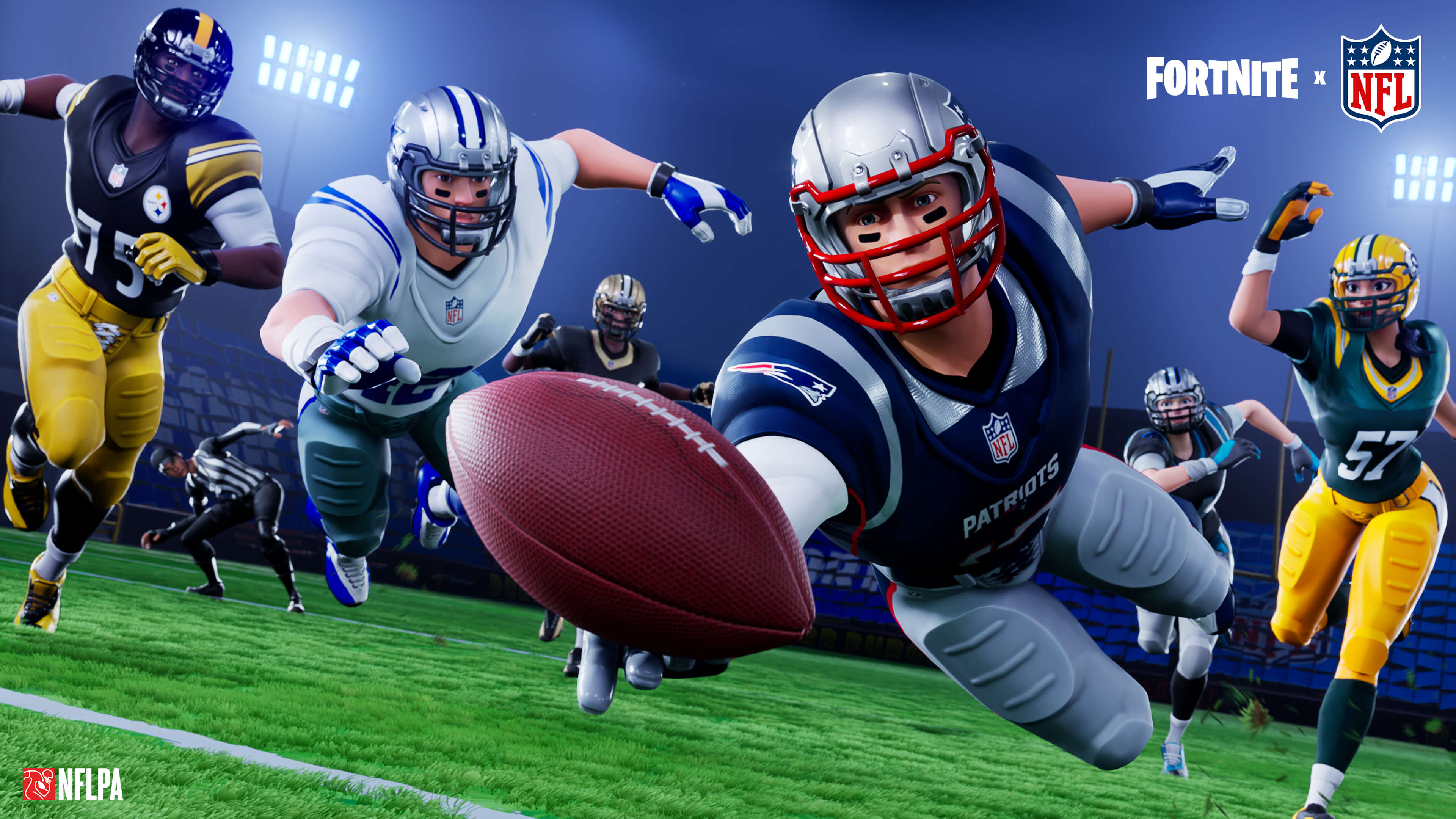
When did PC gaming become mainstream?
I think the factors that produced the wider recognition and adoption that PC gaming enjoys today reached critical mass around 2019. The tailwinds of PUBG and Fortnite behind it, this was the year where so many things seemed to coalesce, from Sony's surprising move to publish most of its games on PC, Discord's dominance as a chat app that also works on your phone, crossplay, and the continued outperformance of small-studio games like Slay the Spire.
Here's my attempt to compress the last three decades into a highlight reel:
1993-1999: PC Gaming's First Golden Age
- CD-ROMs, shareware, 3D acceleration
- Doom, Quake, Half-Life, Unreal Tournament, and the formation of the FPS
- Myst, X-Com, Civilization, Baldur’s Gate, Thief, SimCity 2000
- Blizzard’s trinity: StarCraft, Diablo, Warcraft
- Proto-MMOs like Ultima Online, leading to EverQuest
- The creation of modding as we know it
- (An uncountable number of innovations, important games, and gaming moments.)
2005-2012: The Dark Times
- The Xbox 360 is a tremendously popular alternative to PC gaming, going on to sell more than 84 million units
- Windows Vista and Windows 8 are perhaps the worst-ever versions of the OS, particularly for gamers
- Games for Windows Live is abysmal, excruciating DRM that hamstrings the experience of major blockbuster games on PC
- Many disappointing and/or delayed PC ports of multiplatform games (ex.: Capcom manages to completely screw up Resident Evil 4, a universally beloved action game)
- Duke Nukem Forever releases
- But hey, Minecraft!
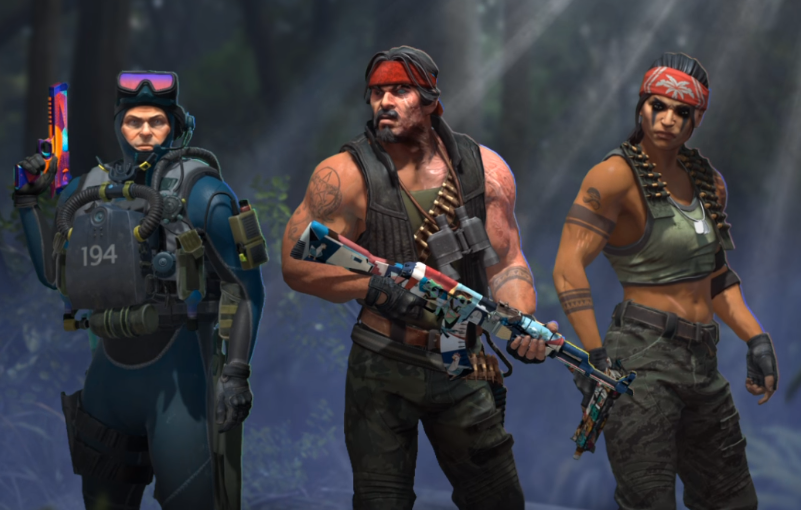
2014-2018: Rebirth
- CS:GO and League of Legends ascend as popular global esports
- Kickstarter paves the way for self-publishing
- Through Steam, independently-published games enjoy greater parity with blockbusters
- Modern VR headsets, though not widely adopted, represent a new performance frontier
- Variable refresh tech & 144Hz monitors
- Skill-based matchmaking replaces privately-operated servers as the standard multiplayer format
- Frequent Steam sales contrast the less-flexible retail prices of console games
- Nvidia Shadowplay enables wide clip sharing (now GeForce Experience)
- With Play Anywhere and other moves, Xbox signals its embrace of PC gaming
- SSDs come down in price
- Steam Workshop eases some of the pain of installing mods
- Japan learned to love PC gaming
- Widespread adoption of PC gaming in China
- We create the PC Gaming Show, in an effort to give PC gaming its own dedicated moment in the E3 spotlight
- The Witcher 3, PUBG, Fortnite (special thanks to its tremendous merchandising machine, which put PC gaming in every school lunchroom in America), Overwatch, Stardew Valley, Dota 2, and the formation of the battle royale genre
2019-Present: PC Gaming's Second Golden Age
- Consoles increasingly resemble PCs
- Crossplay becomes standard
- Wide adoption of Discord as a social companion app
- DLSS significantly lowers the traditional hurdle of GPU performance
- The notion of a “PC port” as an inferior version of a multiplatform game fades
- Helldivers 2, a PlayStation-published game, sells more copies on Steam than on PS5
- “Weird little games” dominate 2024
- Nvidia briefly becomes the most valuable company in the world
- Baldur’s Gate 3, Apex Legends, Slay the Spire, Valorant, Disco Elysium, Elden Ring, Factorio, Hades, Crusader Kings 3, Final Fantasy 14: Shadowbringers, Doom Eternal
Even with much left out, the line of dominoes that led us to where we are is surprisingly long. It wasn't one giant announcement made at E3 or the launch of one GPU that elevated PC gaming—it was an accumulation of many, often competing trends, games, genres, policies, and technologies from many people and groups, often not moving in lockstep, but nevertheless together contributing to the meaning of this open gaming platform.
PC gaming couldn't replicate Mario's marketing, but we could recreate him in the aggregate.
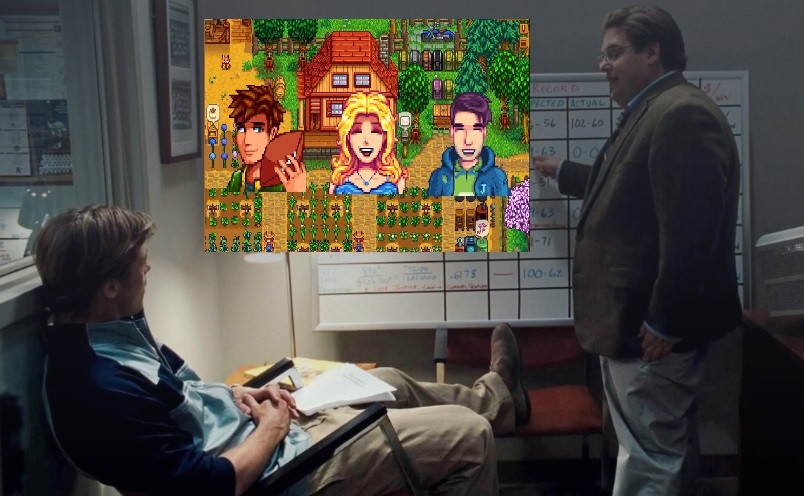
Now what?
The trends that produced this age are still in play, and to my eyes, don't show signs of disappearing. Let's take stock of them:
Supported by modders and independent developers, PC will continue to be the place where new genres are born—colony sims, extraction, roguelike deckbuilders, prox-chat co-op horror—made possible by highly-moddable PC exclusives like Arma 4. The Steam Deck is a strangely cheap entry point to PC gaming at a time when inflation means every dollar counts. PC's proximity to streaming and the wider internet will make it the natural choice for the people who are most passionate about gaming.
Small studios will continue to enjoy parity with the biggest publishers in the world, partly because their development timelines allow them to react to trends more quickly. There will be a steady beat of unexpected hits—more Balatros, Valheims, Vampire Survivors, and Lethal Companies. The still-increasing accessibility of the tools used to make and publish those games will continue to invite the 20-year-olds of the world to make Scary Thomas The Tank Engine FPSes.
We will look back on Helldivers 2 as a significant moment for PC gaming, and perhaps not for the reasons you'd think. Yes, it's eyebrow-raising that a PlayStation game will be one of the best, and best-selling, PC games of 2024. But what I notice is how systems-driven Helldivers 2 is, a historically rare quality for a blockbuster and something spiritually associated with PC gaming. The unknowable firing behavior of the Arc Thrower. The way that Terminid limbs can be severed and, guided only by ragdoll chaos, seconds later fall from the sky and decapitate you without warning. The way that new enemies and weapons have appeared in-game for a handful of players, and are then publicly, playfully disavowed by the studio. Perhaps the biggest DNA-level connection to PC gaming is Helldivers 2's “game master” overseer Joel, a descendent of Lord British and other MMO admins and folk heroes.
All this stuff will sustain PC gaming's booming popularity. As a set of trends, they aren't surprising, but they are heartening. I mean, I don't need a Marvel movie star to profess their lifelong love for StarCraft in order to know that I'm playing games in the best place, but I won't complain.

